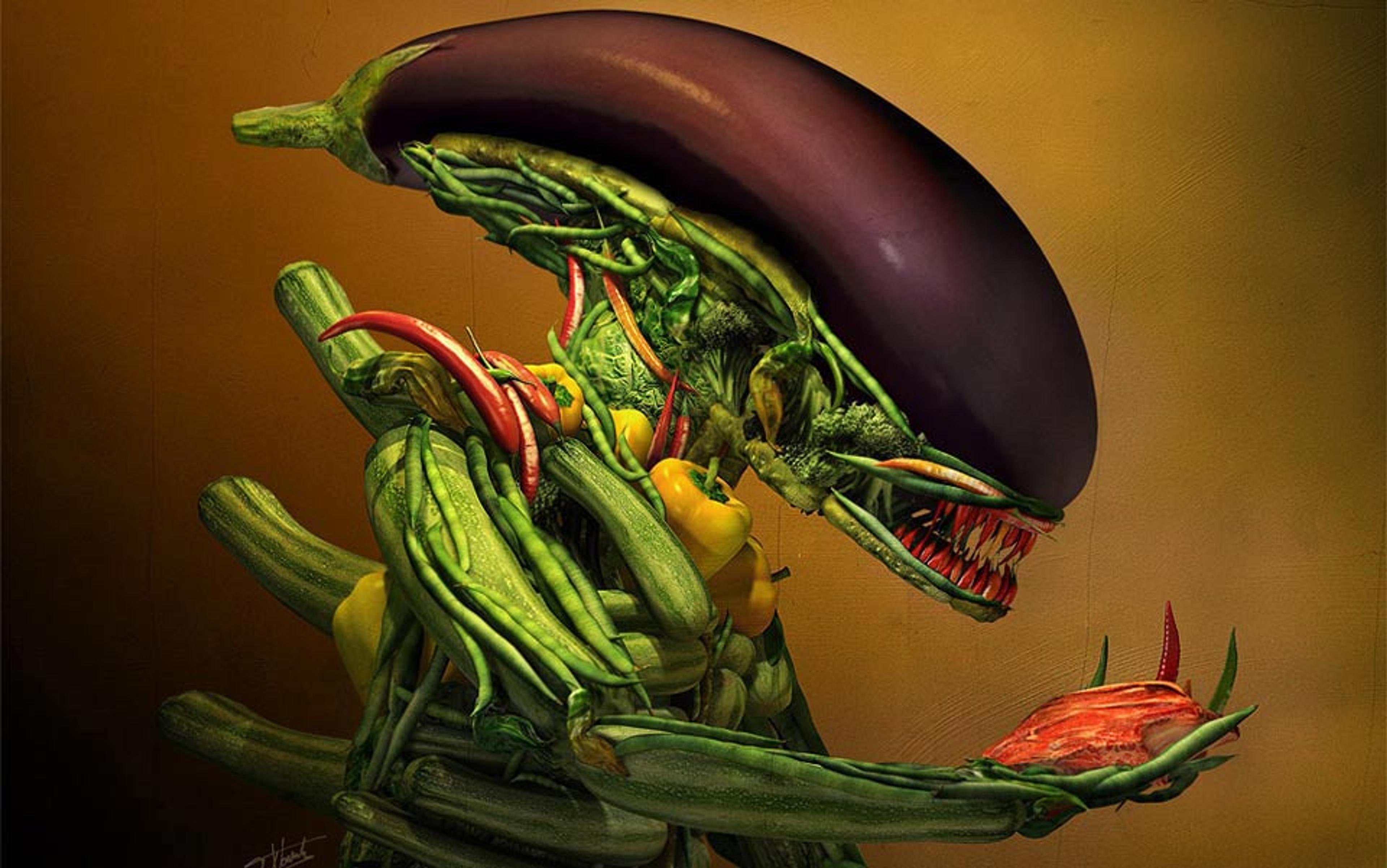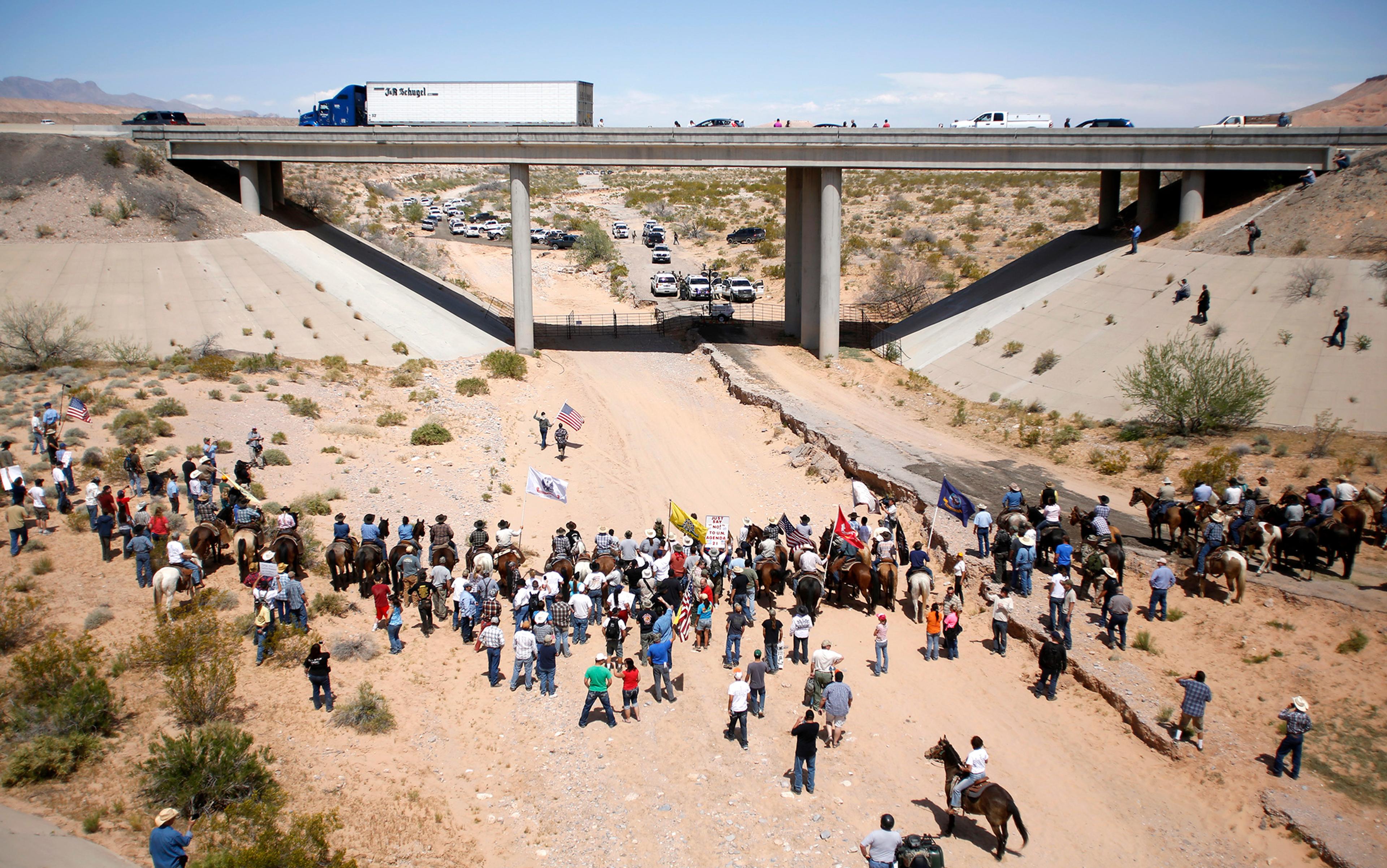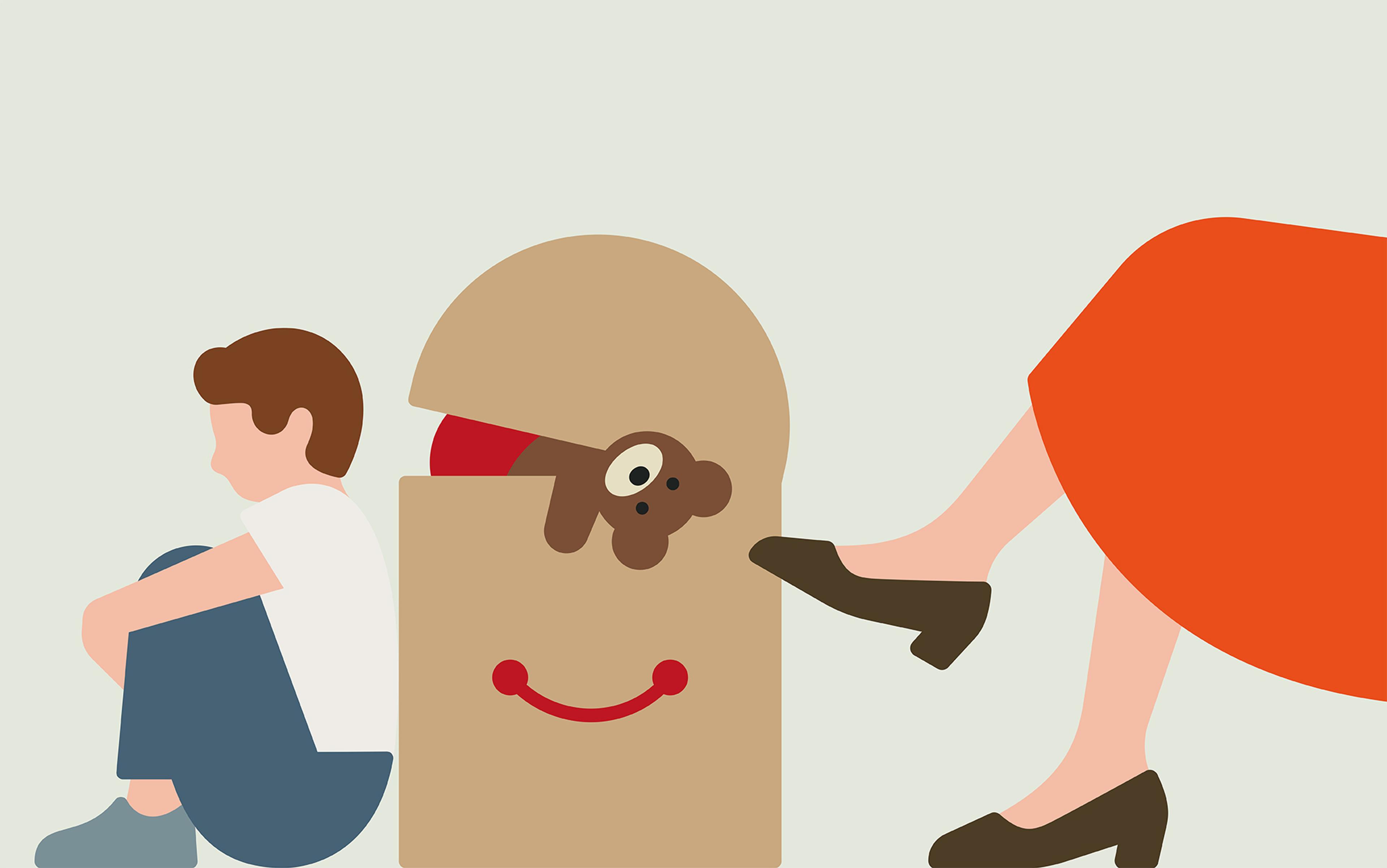The animal rights movement wants to prevent the most powerful species on the planet from oppressing every other species, just as human rights campaigners try to stop the most powerful people from oppressing those who are least powerful. The problem, they say, is ‘human privilege’, a privilege that almost all of us abuse. Yet the injustice they’re fighting is not the entire apparatus of human domination (even if some activists think that’s what they’re against). Rather, it is one significant aspect of it: our treatment of animals as resources — as food, clothing, entertainment, and subjects of research. Animals feel pain and care about their survival, and so their advocates say we should expand our circle of concern beyond humans to the rest of the animal kingdom.
According to animal rights theory, respecting the interests of animals in this way would mean abolishing the use of them as resources. So we’d all have to become vegans who neither eat animals nor use any other animal products. Vegan advocates face a daunting challenge, though, since most of us have a strong prejudice in favour of humans. This makes it relatively difficult for us to empathise with non-humans, so we are reluctant to give up the spoils of animal domination — meat, eggs, cheese, wool, fur and leather — and exchange them for tofu, pleather (plastic leather) and animal liberation.
In the face of this inertia, some have asked us to imagine ourselves in the position of the animals that we exploit and kill. Jonathan Safran Foer puts this in the form of an alien invasion in his anti-factory farming treatise, Eating Animals (2009):
If we were to one day encounter a form of life more powerful and intelligent than our own, and it regarded us as we regard fish, what would be our argument against being eaten?
Suppose that we are doing our usual thing of exploiting animals because they aren’t smart or powerful enough to fight back. An alien species that is smarter and more powerful than us lands on Earth and decides to follow our example by exploiting and killing us. Why shouldn’t aliens use their technological and cerebral edge to turn us into food, clothes, entertainment and research subjects, just as we do to animals now?
This is, of course, a sci-fi repackaging of the ‘Golden Rule’ — that is, one should treat others as one would like to be treated oneself. This argument resonates because most of us have picked up a version of ‘do as you would be done by’ somewhere along the way, no matter how secular our upbringings. Could it be, then, that if we want to be consistent with our own values, the animal activists are right that we need to go vegan?
We might object that there is something misleading about the alien scenario. It wants to make us see things from the animals’ point of view, yet fudges it by putting us in the animals’ place while maintaining our human cultural beliefs and cognitive abilities. There are certainly similarities between human and non-human experiences, especially when it comes to pain, but as with the Epsilons in Aldous Huxley’s novel Brave New World (1932) who are genetically designed to tolerate a subservient existence, we assume that cows, pigs, lambs and chickens who are raised on farms and killed in slaughterhouses do not suffer the horror and existential anguish that humans would in the same circumstances. This is why the alien hypothetical is something of a cheat, and equally why comparing factory farms to the Holocaust and human slavery rings false.
Universal veganism would accomplish next to nothing for free-roaming wild animals
Even so, if animals want to avoid suffering and want to live, as surely they do, using them as resources violates those interests. Given that humans cause animals so much suffering and death while offering them so little in return, there’s no denying that for most other animals on this planet, we might as well be a malevolent invasion.
So, my objection to the alien invasion scenario is more sweeping. If we want to take the interests of animals seriously, then the biggest failure of the analogy is that it underestimates just how malign we are. Sure, if we were replaced as the dominant animals on the planet, we’d probably prefer the new ruling species to be vegan. But if aliens with superior technology and minds came here and were determined to treat us the way that vegan humans treat animals on this planet, we’d still be in serious trouble. Veganism would hardly figure as a safeguard of our wellbeing.
Universal veganism wouldn’t stop the road-building, logging, urban and suburban development, pollution, resource consumption, and other forms of land transformation that kills animals by the billions. So what does veganism do exactly? Theoretically, it ends the raising, capture and exploitation of living animals, and it stops a particular kind of killing that many vegans claim is the worst and least excusable: the intentional killing of animals in order to use their bodies as material goods.
Veganism, as a whole, requires us to stop using animals for entertainment, food, pharmaceutical testing, and clothing. If it were to become universal, factory farming and animal testing would end, which would be excellent news for all the animals that we capture or raise for these purposes. But it would accomplish next to nothing for free-roaming wild animals except to stop hunting, which is the least of their problems.
The International Union for Conservation of Nature in Switzerland, the world’s first global environmental organisation, says:
Analyses of the data on threats to bird, mammal and amphibian species… show that the most pervasive threat that they face is habitat destruction and degradation driven by agricultural and forestry activities.
Animal agriculture is responsible for plenty of that, but is far from the only culprit. Purely arable farmers accidentally kill insects, snails, small mammals, and other animals with farm machinery, and they intentionally kill these animals with pesticides that often unintentionally go on to harm wildlife through drift and secondary poisonings. Farmers also allow hunters onto their land to reduce the populations of deer and other ‘pest’ species that might eat their crops. Redirecting water for irrigation kills fish, as does spill-off from fertiliser and pesticides. We run over animals with our cars. We destroy animal habitats to build our cities, and we extract resources from areas that then become either uninhabitable or dangerous. The ‘wild land’ that we do leave untouched is often fragmented into little bits that don’t give animals the space they need to make homes and roam for food, and so cannot sustain them.
If our intergalactic superiors landed here, but had no interest in eating us or our fellow animals, the first thing they could do is rob our stores, homes, farms, and warehouses of all our fruits, vegetables, beans, grains, and vegan convenience products. Without violating any vegan principles there would be no limit to the amount of food vegan aliens could steal from us — vegan ethics allows for humans using all the plant matter they want in the world, no matter how many animals starve as a consequence. Aliens could cause the worst famine humanity has ever seen, but it would be entirely compatible with vegan ethics. That’s because it would all fall under the rubric of ‘good intent’. They wouldn’t be killing us deliberately to eat us, but rather because they wanted our food and had the power to take it — our starvation would be a foreseeable, yet accidental, side effect. We might try to fight the vegan invaders over this mass plunder, but then they could kill us outright for threatening their lives. That’s because humans killing animals in self-defence is also no crime in veganism, even if we’ve wandered onto the animals’ own territory.
Since veganism doesn’t stop us from wrecking animal habitats to make space for ourselves, vegan aliens could knock down all our buildings to construct new ones that better fit their pan-galactic design aesthetic. They could evict us from our homes, businesses and veganic farms without compensation, and then, to keep us from returning, they could set up fences, noise barriers and other humane deterrents. To them, we would be hungry pests who threaten their vegan food supply, so they might even be justified in trapping us or killing us with poisons if we got too close. Humans would now largely be without food and shelter, but the vegan aliens wouldn’t need to lose sleep over it, since none of this contradicts any vegan tenets.
Depending on how much land was required for the vegan alien cities to accommodate all their alien vegan restaurants, alien anarchist bookstores and alien warehouse lofts, the vegan aliens might or might not set aside some land for humans to live on. Because our habitat would be fragmented to suit aliens’ desires regardless, it would be difficult or impossible for us to redevelop agriculture of our own, or gather enough food to survive. Any habitat they left for us would never truly be ours anyway, because if the aliens ever wanted to increase their population or just spread out, veganism doesn’t stop them from taking more land.
Some vegan aliens might enjoy keeping a few human pets, naming us, cuddling us, and feeding us veggie treats. Even now, pet ownership is a controversial issue in animal rights, but most activists say that it’s okay for vegans to keep some animals as dependents since they have been domesticated and, as a result, would suffer in the wild. Vegan aliens could justify keeping humans as pets for similar reasons if they saw that some of us couldn’t make it on our own. That might be a pretty fair deal if the aliens were friendly and loving owners, but the downside is that they could spay and neuter us, as even People for the Ethical Treatment of Animals says vegans should spay and neuter their pets. Of course, the aliens would say this was for our own good, as we tend to overpopulate when left in charge of our own reproduction.
Any sacrifices we make this side of human extinction are token compromises
There’s a chance that not all aliens would thrive on a plant-based diet. Some of the aliens might suffer from an unfortunate confluence of intolerances, allergies, digestive troubles, and medical conditions, or they could be living in harsh climates without enough plant material to sustain them. There could be any number of alien-centric conditions that made veganism too difficult for some of them. Vegan ethics makes exceptions in cases like this when a vegan diet just cannot work for some individuals, which means some of the aliens would be allowed to eat meat for their health. For example, aliens with Smith-Lemli-Opitz Syndrome who can’t produce enough of their own cholesterol might benefit from an external animal source. And aliens with epilepsy might need to be on a high-fat, low-carb ketogenic diet to control their seizures, but it would be nearly impossible for them to get the right balance of macronutrients without eating animals, especially if they also happened to be allergic to soy, gluten, and nuts.
So which animals would they kill for this purpose? Since the vegan aliens would claim to be anti-speciesist, it would be unjust discrimination for them to value the lives of humans over those of other animals such as deer, squirrels, pigeons, rabbit, or fish. So if the aliens couldn’t tolerate soy, wheat, fructose, oxalates, or nuts, or if they lived somewhere without much in the way of vegan foods, they could eat us with a clear conscience.
A vegan alien invasion could then all but destroy humanity while rationalising most of our suffering and death as ‘accidental’ or ‘unfortunate but necessary’, just as vegans now rationalise the harms that a plant-based human civilisation would cause nonhuman animals. What the argument from alien invasion ultimately shows, then, is that humans cannot consistently apply the Golden Rule to the rest of the animal kingdom without going a lot further than vegans are asking us to go. Animal rights philosophers are positing a problem that might have no practical solution. Yes, nonhuman animals are thinking and feeling individuals who want to live, but attempting to correct the power imbalance between humans and other animals would require much more than humans giving up animal products. We would have to stop spaying and neutering animals, reverse our destruction and fragmentation of animal habitat, give up agriculture and civilisation, refuse to eat animals even when our wellbeing requires it, and become pacifist gatherers who never foraged food that other animals needed for themselves. Even then, other animals would have nothing to gain from our presence here. This is why some people believe that the logical conclusion of animal rights is human extinction.
The Golden Rule works for humans because it isn’t necessarily a zero-sum game between us all. The conflicts between humans of different races, genders and sexual orientations are socio-cultural and thus subject to betterment — there is no inherent reason that men and women of all colours cannot work together for our mutual benefit. The conflicts between humans and other species, however, are genetic and inevitable: our DNA and accumulated knowledge and technology currently makes us the cleverest, most powerful species on the planet, and since we cannot cooperate with wild animals for the mutual benefit of all sentient beings, we have little choice but to dominate instead.
Neutrality is impossible in a world with limited resources. Everything we take is a loss for other animals, and since we want to live, enjoy our lives and reproduce (just as they do), we will never stop bypassing animals’ desires for our own, so long as we are here. We can give up some of the luxuries of domination for the sake of non-humans, but any sacrifices we make this side of human extinction are token compromises that selfishly maintain our fundamental position. Worldwide veganism wouldn’t allow us to live in harmony with other animals — it’s just one of those token compromises. No matter what ethical philosophy we hold on to, on the day that brilliant, powerful aliens invade our planet, we’d better hope that they don’t try to be anything like us.






